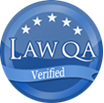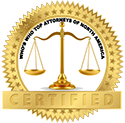On Behalf of Adler Law Group, LLC
When a visitor to a property suffers an accident and is injured, it may qualify as a personal injury case. The area of the law that this injury falls under is premises liability laws. In Connecticut, these types of civil claims for damages are also subject to the comparative liability stipulations.
Premises liability laws refer to the responsibility on the part of a property owner or party in possession of a premises to maintain it safely in order to prevent the possibility of a guest or visitor suffering a serious injury. Informing customers, guests and other invitees of existing hazards falls under the responsibility of an owner and/or the party in possession of the property at the time. In some instances, landlords may not be held liable for some accidents if the unsafe conditions were the result of the negligence or actions of the current occupants.
Premises liability laws can be further broken down into different categories based on the nature and purpose of the individual who was hurt while on the property. Invited guests, such as a customer or personal friend, are entitled to a safe environment free from hazards and conditions that could result in a physical injury. Likewise, those who enter a property based on professional duties are also entitled to a safe entry or appropriate warnings of possible dangers. However, those who are trespassing without a legitimate reason for entering a property are not entitled to the same reasonable expectation of safety. Nevertheless, if there is reasonable expectation that the property will be subject to regular entry of trespassers, then sufficient notice of an existing hazard may be required, and this stipulation also applies when it can be expected that minors will have access to the property –either with or without official permission.
Along with the above guidelines, the issue of comparative liability adds another layer of complexity to some premises liability cases. In Connecticut, as long as the injured party is not more than 51 percent responsible for his or her own injuries, it is possible to recover monetary damages when someone else’s negligence caused or contributed to the injuries suffered. If this occurs while visiting the property of another, a personal injury attorney can help sort through the legalities and identify the party or parties who may bear financial responsibility.
Source: FindLaw, “Premises Liability: Who Is Responsible?“, Accessed on Sept. 17, 2017



















